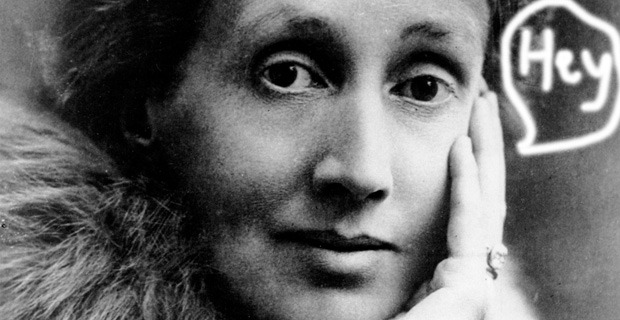Hello reader. Today we’re going to talk about what I’m currently studying.
I would love to talk about what you’re studying, but unfortunately I am the writer and I am calling the shots around here.
In Professor Zeff’s Women & Ficton course, we’ve been reading work by Virginia Woolf.

Every time I begin a study of a writer, I always find myself googling her name and seeing what interesting bits of information I can discover about her without actually having to apply myself to my assigned work (this is an example of procrastination if you are that one college student who has never procrastinated and wouldn’t be able to spot it if they saw it).
So far, one of my favorite things about Woolf is the way in which she analyzes literature; the way it works and the way we appreciate it. While reading through a list of quotes, I stumbled across a gem of hers that I wish I could email to a sixteen year old me who spent too much time arguing my “superior” (my partner is rolling his eyes as he reads this) taste in everything:
“…but is Hamlet a better play than Lear? Nobody can say. Each must decide that question for himself. To admit authorities, however heavily furred and gowned, into our libraries and let them tell us how to read, what to read, what value to place upon what we read, is to destroy the spirit of freedom which is the breath of those sanctuaries. Everywhere else we may be bound by laws and conventions — there we have none……few people ask from books what books can give us. Most commonly we come to books with blurred and divided minds, asking of fiction that it shall be true, of poetry that it shall be false, of biography that it shall be flattering, of history that it shall enforce our own prejudices. If we could banish all such preconceptions when we read, that would be an admirable beginning. Do not dictate to your author; try to become him” (Woolf, The Common Reader, Second Series)
If we had all read and accepted this quote when we were sixteen, I’m sure I’m not the only one who would have saved time wasted on useless debates about taste in music, film, and writing.
Don’t get me wrong, I’m all about critique and giving my opinion, but I would like to take back any of the times I ever shoved that opinion down the throat of someone who happened to think differently.
And that line, “Do not dictate to your author; try to become him”? That is what we are all about here at the writing center. We’re not going to tell you HOW to write, we’re going to talk about you as a writer and what we can do to facilitate that role for you, or at least put you at ease with the idea if you’d never considered it before.
Anyway, that quote is just a taste of Woolf and what I am studying.
Take it with you and keep it in mind the next time your roommate wants to argue about what the best shows on Netflix are.
And if you think I deserve extra credit for researching and blogging about Woolf in my spare time, please see Professor Zeff.
(photo courtesy of bloggingwoolf.wordpress.com)
(I’m mostly kidding about the extra credit)
